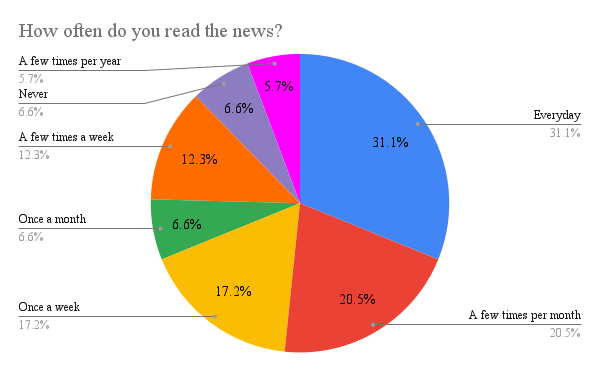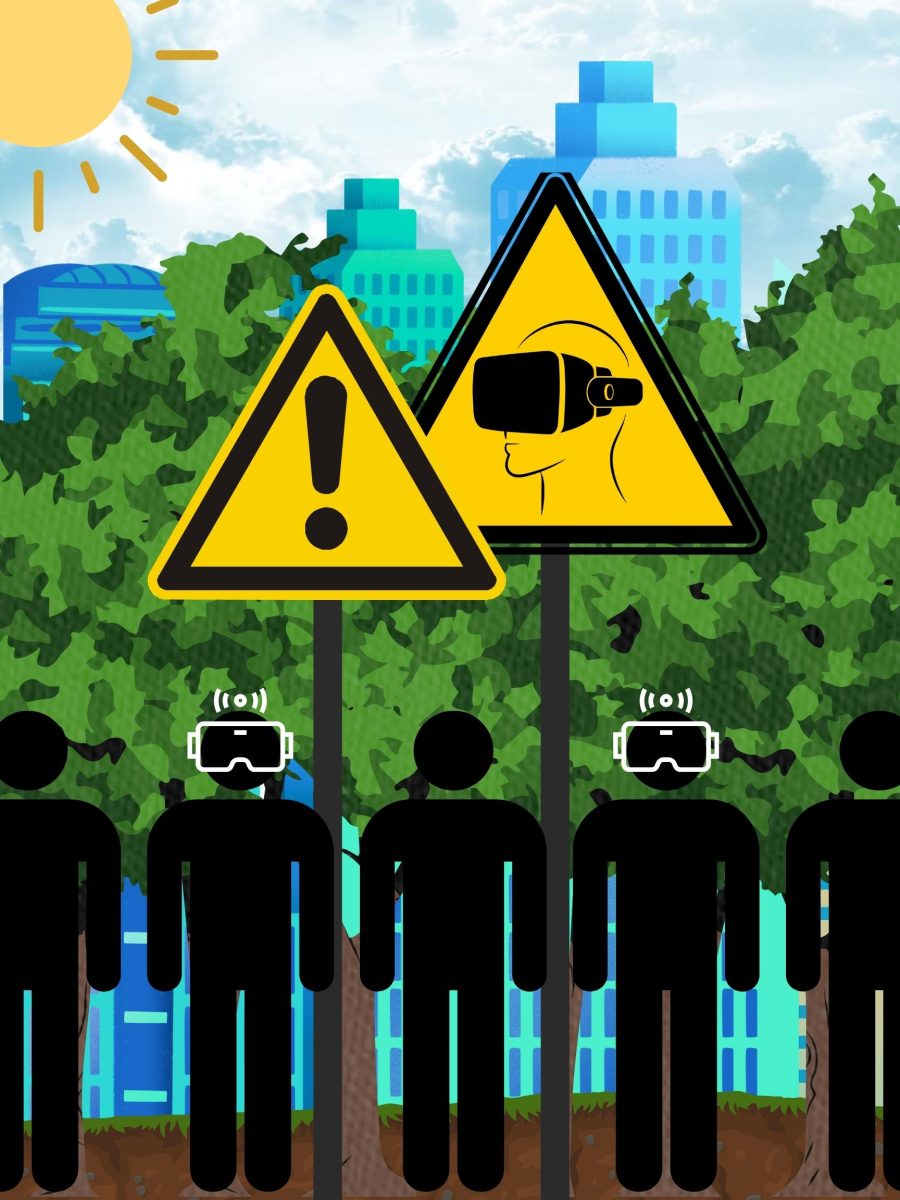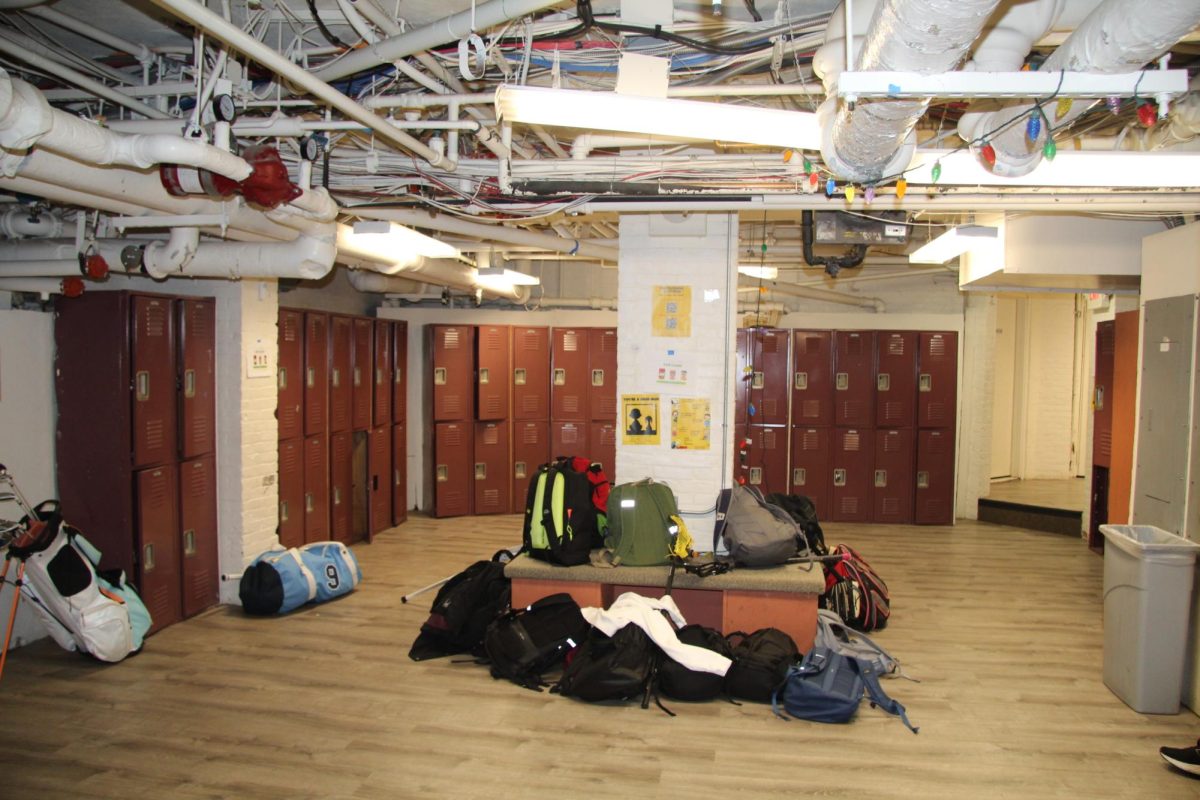With so much going on in the news, students should be more informed on pressing issues. I am concerned with how informed young people, including students at Hackley, are about the events that occur in the world around us. Ignorance is an imperative issue that surrounds the human population, especially with the growing advancements in the internet and social media which can lead to people being misinformed. As a teenager, Hackley student, and American citizen, I believe that it is our duty as a school to make more efforts to be informed on the news.
“It is hard to tell how informed students are,” said Upper School History teacher Stephen Fitzpatrick. Mr. Fitz remarked that there is a spectrum regarding how informed students at Hackley are on the news and that students fall into a few different categories. Some students are very informed, some are not informed at all, and most students fall more into the middle of that spectrum. Mr. Fitz, however, emphasized that the greater issue of students concerning the news is where they get their information from.
With the rise of social media outlets and their influence on young people’s lives, there are ever-growing places where people can get their information. With the growth of media outlets also comes the increase in places that can present misinformation, biased opinions, or incomplete information.
According to PBS, “Most young people believe keeping up on current news events is important, but they do not get their news through traditional outlets. This flattened media landscape has removed the barrier between news, socializing with friends, and entertainment. News-related memes seem to tick all those boxes.”
Additionally, according to Common Sense Media, after surveying teens ages 13 to 17, 54% of teens get their news from social media, 50% from YouTube, and 41% from actual news organizations.
Along with the issue of where students get their news from is their ability to verify or challenge news sources. Mr. Fitz said that “students can fall into simple narratives.”
Andrea Prat, a Columbia University professor, measured America’s knowledge of government news. To conduct the study, the researchers working with Prat devised a protocol for identifying the most important news stories, and each month, a panel of US journalists recruited from the Columbia School of Journalism selected what they thought to be the top three national stories about the federal government. Participants took the survey and identified which issues they knew about and which they did not. The survey conveyed that the average citizen is well-informed about big stories. About 64% of voters knew the most important story. However, the percentages decreased substantially after that.
Mr. Fitz acknowledged that students at Hackley are more interested in the big stories like foreign policy regarding the Ukraine-Russia war and the war in Israel and Gaza.
Upper School students were surveyed on how often they read the news and what sections of the news they read. If the students responded that they read the news every day, a few times a week, once a week, a few times per month, or once a month, they were then prompted to answer which topics of the news interested them the most. The people who responded said that they are most interested in topics of foreign policy (72%), second most interested in pop culture (46.7%), and third most interested in topics of technology (41.1%).
Mr. Fitz said that he is unsure of how many students effectively read newspapers. He is uncertain of the consistency and the effort that Hackley students put in to make reading the news a daily habit.
“Media literacy is critical. Reading the news daily might be a lot to ask of young people, but the earlier students can start doing that, the better and more informed they will be,” said Mr. Fitz.
From the student survey, 31.9% of the respondents read the news daily and 6.7% of students never read the news.
“There are consequences of having an electorate that is fairly uninformed or worse, misinformed, either deliberately or due to disinformation. Not challenging sources that they think are credible is dangerous,” said Mr. Fitz.
Mr. Fitz presented the problems that teenagers’ ignorance can have on the electorate. He acknowledged that ignorance leads to polarized conversation. When teenagers become eligible to vote, they are less likely to understand the issues in a way that they can cast a meaningful ballot or understand what the debates are really about.
The challenge with solving this problem is that a lot of the classes at Hackley that regularly incorporate the daily news or current events are electives. The students who choose to take the courses are already interested or predisposed to this information.
The students who responded to the survey that they never read the news, were all (but one) students who do not take a history elective course. Additionally, of these students, all but one are ninth or tenth-graders.
Senior Phoebe Abrahms takes US Government and Politics, which examines the media and incorporates current events into the material. Phoebe reads the news a few times a week, yet she has started to read the news more after taking the Government class.
“The amount I read the news depends on what is going on in the news and how much free time I have,” said Phoebe. She said that the sections of the news she is most interested in are the political sections, as well as the news sections regarding the Israeli-Palestinian war. Among her friends at Hackley, Phoebe generally feels that people are informed and, in the grand scheme of things, would consider herself more informed than some of her peers.
“I think it is imperative to be updated on the news, and I wish I were more diligent with my reading,” Phoebe said.
“My favorite part about the gov class is that I will get a handful of students who have the attitude that ‘I don’t know anything about this, and I want to know more about this,’” Mr. Fitz said.
However, he said that this is a self-selected group of people. A lot of people who are ill-informed on the news don’t care that they don’t know a lot about it.
Fortunately, this is not a lost cause. At Hackley, Mr. Fitz highlighted the methods that can help students to become more informed. Roundtable discussions are an excellent example of this. Roundtable discussions allow students to engage in thoughtful discussion with their peers and ask questions of teachers who are informed on the issues. Many teachers are very accessible and great at answering students’ questions. Vladimir Klimenko, Upper School History teacher, is a great example of this as he is well-informed on many foreign policy issues that he will not hesitate to talk to students about.
There are also many ways that students can easily become more informed on the news through resources that are provided by Hackley. Hackley provides free subscriptions to the New York Times and The Wall Street Journal. You can find instructions on how to make a New York Times account through the library website. For The Wall Street Journal subscription, Hackley has one password and username for each student, so if you are interested in using the subscription, Jennifer Swan, Library Department Chair and Upper School Librarian would be happy to talk to you. Hackley also provides access to digital magazines like The Atlantic, The New Yorker, Rolling Stone, Architectural Digest, Vogue, and more. All of these resources are free and easily accessible from any device. Another great way to inform yourself is by looking at the Hackley databases. They are all up to date and there is news that is fairly recent. There is also a database called Digital Literacy that helps to teach tips on how to avoid myths and misinformation.
While ignorance is a problem, I have confidence that as a Hackley community, we can put a collective effort into becoming more informed.







